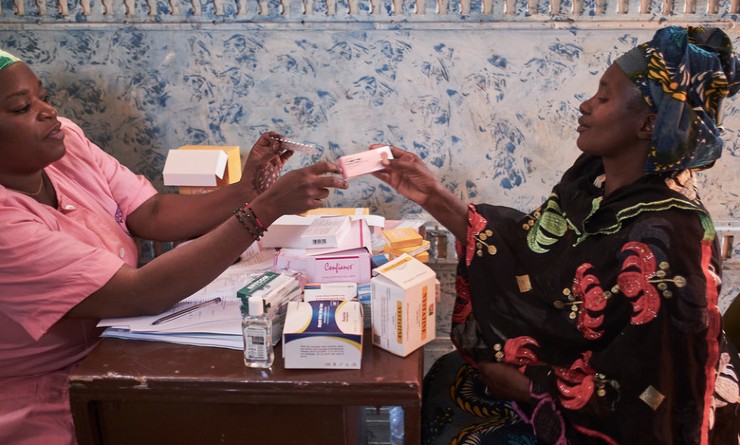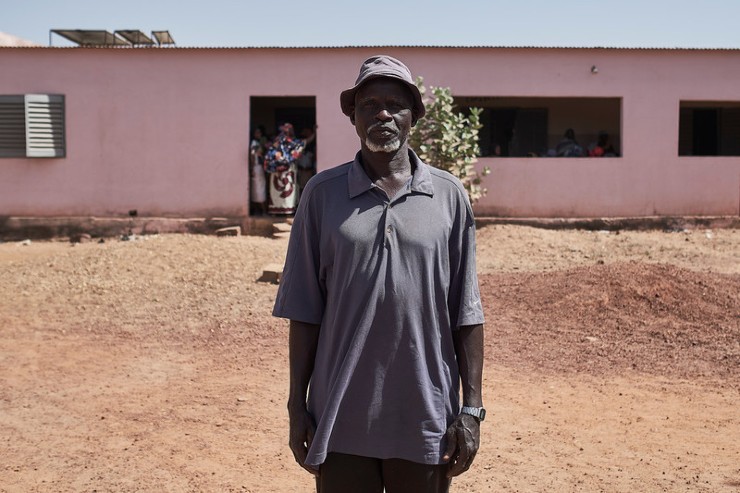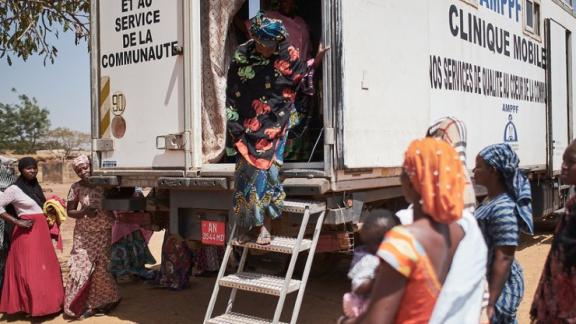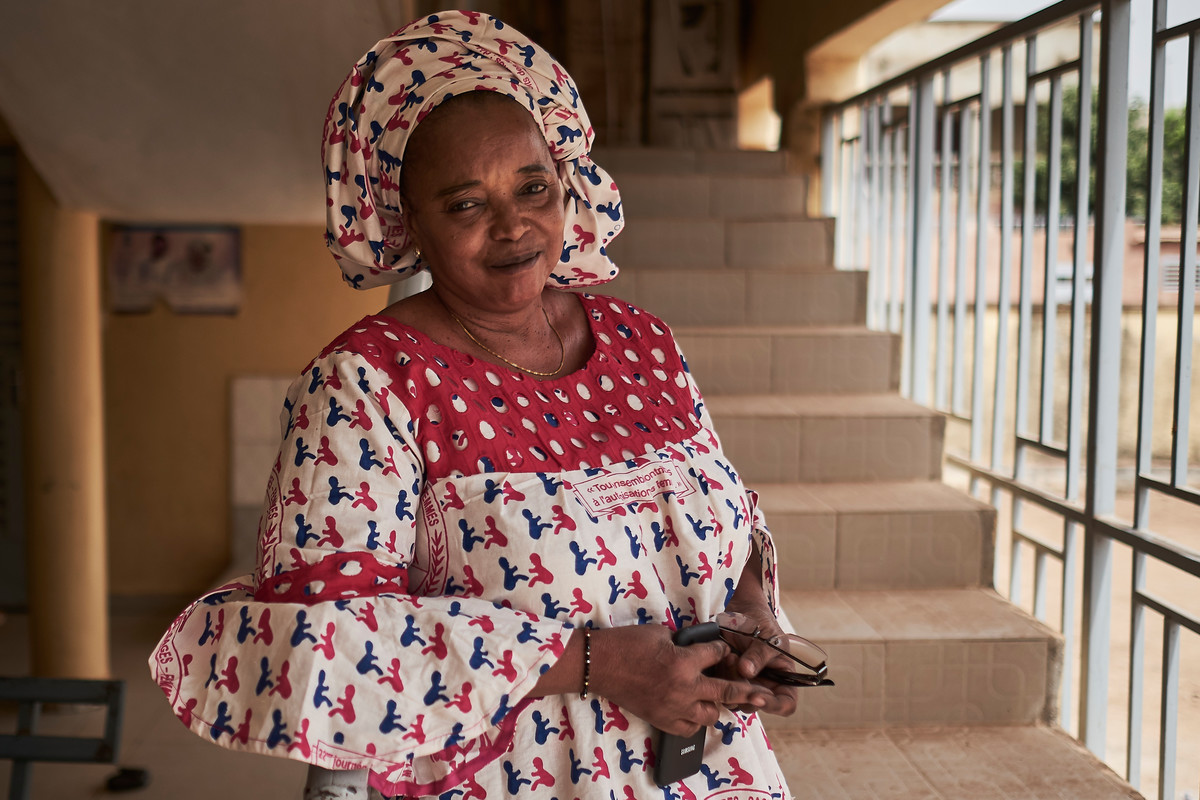The village of Missala sits an hour south of Mali’s sprawling capital, Bamako. Most of the few hundred villagers here remain reliant on agriculture, and despite their proximity to the city, poor roads and lack of public transport have left them isolated.
It’s a real event when the mobile clinic of the Association Malienne pour la Protection et la Promotion de la Famille (AMPPF) rolls into town once a month, and midwife Mariame Doumbia opens her doors to a fast growing crowd of women.
“The mobile clinic is important for accessibility, so that the women living in poorly serviced areas can access sexual and reproductive health services, and reliable information,” Doumbia said, as the first client climbed the metal stairs into her consulting room.
Serving vulnerable women and girls
The three mobile clinics operated in remote areas by AMPPF in Mali serve some of the most vulnerable women and girls in the country. They are maintained with Canadian Government funds via the SheDecides project, which stepped into the yawning gap left by the reinstatement of the Global Gag Rule (GGR) in 2017. That year, AMPPF worried it would lose all of its mobile clinics, and a lifeline for these women. “There are a lot of early pregnancies here. They call me often to come here for that reason,” Doumbia added.
The mobile clinic provides free contraception and smear tests/pap smears, and women also ask for advice on all aspects of their health and wellbeing.

Kadidiatou Sogoba, a mother of seven, waited nervously for her turn. “I came today because I keep getting ill and I have felt very weak, just not myself, since I had a Caesarean section three years ago. I lost a lot of blood,” she said. “I have been very afraid since the birth of my last child. We have been using condoms and we were getting a bit tired of them, so I am looking for another longer term type of contraception.”
After emerging half an hour later, Sogoba clutched a packet of the contraceptive pill, and said next time she would go for a smear test.
"I come here all the time to ask when the clinic is coming back"
Others consult the midwife about their problems with infertility. “I come here all the time to ask when the mobile clinic is coming back. I used to come for the contraceptive injection to protect myself,” said Aminata Traoré, who married at 15 and has one child aged eight. “I want another child now but I can’t get pregnant and I have irregular periods. The midwife prescribed me some fertility drugs,” she said.
Adama Samaké, chief of the Missala Health Centre, oversees the proceedings as a village elder with deep trust from his community. When the mobile clinic isn’t around, his centre offers maternity services and treats the many cases of malaria that are diagnosed in the community.

“Given the distance between here and Bamako, most of the villagers around here rely on us for treatment,” he said. “But when we announce that the mobile clinic is coming, the women make sure they are here”.
Samaké’s wife is a client of the clinic, and they have decided to stop having more children. He believes the community has built a relationship of trust with Mariame Doumbia and her AMPPF colleagues. “The midwives know their job and they do it well. Fewer people go to see the local witch doctor now. They know the modern methods of contraception are more reliable,” he said.
when
country
Mali
Related Member Association
Association Malienne pour la Protection et la Promotion de la Famille









